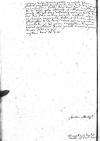List #2981
Stanisław HOZJUSZ (HOSIUS) do Ioannes DANTISCUSCracow (Kraków), 1546-07-04
| odebrano Seeburg (Jeziorany), 1546-07-13 Rękopiśmienne podstawy źródłowe:
Publikacje:
| ||||||
Tekst + aparat krytyczny + komentarzZwykły tekstTekst + komentarzTekst + aparat krytyczny
Reverendissimo in Christo Patri et Domino, domino Ioanni Dei gratia episcopo Varmiensi, domino colendissimo
Reverendissime Domine, domine colendissime.
Officiosissimam servitutis meae commendationem.
Nominatio secundo loco, ita ut Reverendissimae Dominationi Vestrae visum est,
Ceterum dominus palatinus marienburgensis designatus est orator ad caesaream maiestatem in causa proscriptionis domini ducis. Quam provinciam utrum sit suscepturus, nescio. De domo optanda sequar consilium Reverendissimae Dominationis Vestrae. Constellatus operam suam promisit in abrogandis erroribus istis, quibus civitas est infecta. Fuit hic stator civitatis, qui mira narrabat de mutatione facta in melius deque Pancratii auctoritate diminuta. Quae utinam vera sint. Mussitatur hic de moneta, quam cudunt, nisi quod privilegium habere dicuntur, per quod licere sibi putant cudere cudente maiestate regia. Quod si habent, non sine tumultu violari poterit. Sed praeclarum erat consilium Reverendissimae Dominationis Vestrae, ut in exterminanda moneta ne fieret mentio domini ducis, verum in genere scriberetur, nisi quod post latum decretum consilium est quaesitum. Quoad fieri poterit, providere conabor, ne in personam Reverendissimae Dominationis Vestrae commissiones impetrentur, nisi prius de voluntate illius constiterit, utrum hoc onus in se
 AAWO, ABD19, p. 61_2 recipere velit. Vicinus quibus ex causis Vilnam fuerit profectus, scripsi paulo ante Reverendissimae Dominationi Vestrae, quantum hidden by binding⌈[m]m hidden by binding⌉ ipse cognoscere potui. Dixi reverendissimo domino, quae fuerit Reverendissimae Dominationis Vestrae, quae alterius et collegarum sententia hidden by binding⌈[a]a hidden by binding⌉: grata illi est haec voluntas erga se Reverendissimae Dominationis Vestrae, cui duo haec milia accepta refert atque in ea summa acquiescit. Futurus est olim memor istius offici Reverendissimae Dominationis Vestrae. Cuius ego me gratiae commendo ac ut quam longissimo tempore vivat incolumis, Deum precor.
AAWO, ABD19, p. 61_2 recipere velit. Vicinus quibus ex causis Vilnam fuerit profectus, scripsi paulo ante Reverendissimae Dominationi Vestrae, quantum hidden by binding⌈[m]m hidden by binding⌉ ipse cognoscere potui. Dixi reverendissimo domino, quae fuerit Reverendissimae Dominationis Vestrae, quae alterius et collegarum sententia hidden by binding⌈[a]a hidden by binding⌉: grata illi est haec voluntas erga se Reverendissimae Dominationis Vestrae, cui duo haec milia accepta refert atque in ea summa acquiescit. Futurus est olim memor istius offici Reverendissimae Dominationis Vestrae. Cuius ego me gratiae commendo ac ut quam longissimo tempore vivat incolumis, Deum precor.
Eiusdem Reverendissimae
D(ominationis) or D(ominationi)⌈D(ominationis)D(ominationis) or D(ominationi)⌉
Vestrae servitor addictissimus


